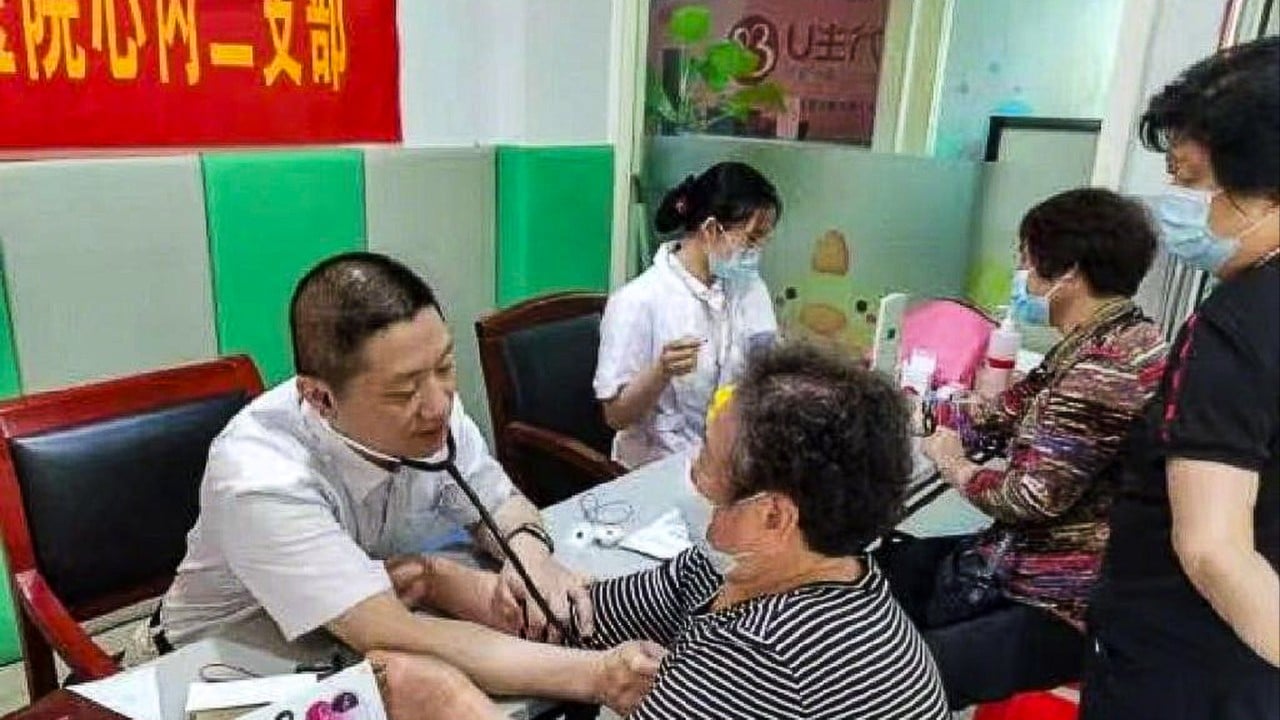A doctor in eastern China has died after being stabbed by a man reported to be the relative of a patient, igniting public anger and fuelling calls for stronger punishment for violence targeting medical staff.
The fatal stabbing was the latest in a string of attacks on medical workers in recent years – a trend that reflects shortcomings in China’s medical system and tensions fuelled by a lack of medical resources.
Li Sheng, a cardiologist from the First Affiliated Hospital of Wenzhou Medical University, was stabbed on Friday afternoon while working in the outpatient clinic. He died later that night after emergency treatment failed, the hospital said in a statement on Saturday.
Local police said on Friday the attacker jumped from a building after stabbing Li and was still undergoing treatment. His identity and motives are not yet clear.
On Saturday night, the National Health Commission (NHC) expressed condolences over Li’s death and stressed that violence against medical staff is a serious crime.
“Such incidents not only harm the legal rights of medical staff but also sabotage the order of medical services and harm the rights of the public,” the NHC said in a statement. “We have zero tolerance for any kind of attack on medical staff.”
It said it was cooperating with police to crack down on similar crimes to ensure the safety of patients and medical staff and called for local hospitals to improve security.
According to the Economic Observer, Li had been working overtime on Friday and did not even have time to eat lunch.
A colleague told the newspaper Li was enthusiastic and always worked overtime to see as many patients as possible. The colleague watched a video of the attack that has been circulating online and identified the attacker as a former patient’s family member.
Li suffered multiple injuries, including to his liver, intestines, pancreas and abdominal aorta, the doctor said.
A Shenzhen-based doctor told the Post many hospitals do not have adequate security measures. She said that in her hospital, there were too many entryways, and not every entry is equipped with security checks. When emergencies happen, security guards usually cannot arrive in time, she said.
“In theory, there should be two paths into the clinic, and doctors can escape through the employee exit if anything happens,” she said.
But these measures cannot solve the problem at the root, she added.

Many have pointed to systemic flaws fuelling such sentiment against doctors. China’s public hospitals receive limited government funding and are required to keep medical fees low by policy.
With an urgent need to make profits to survive, doctors often face heavy duties and little pay. This has spurred corruption in some areas. Meanwhile, some patients feel they do not receive enough attention during treatment or cannot afford the large bills and blame it on doctors.
According to a 2020 analysis by Renmin University’s journalism school, there have been 295 media reports of attacks on medical staff over the past 10 years. In total, 362 people were injured in these attacks and 24 killed, and the attacker used a weapon in 99 of these incidents. The most common punishments reported were detentions and fines.
There is no specific law addressing such attacks against doctors. Attackers are typically charged with criminal offences including murder, intentional harm, or the catch-all crime of picking quarrels and provoking trouble.
In the wake of Li’s attack, many called for heavier legal safeguards, such as a separate law to protect the safety of medical professionals or a clause in the criminal law addressing such attacks with a matching punishment.


